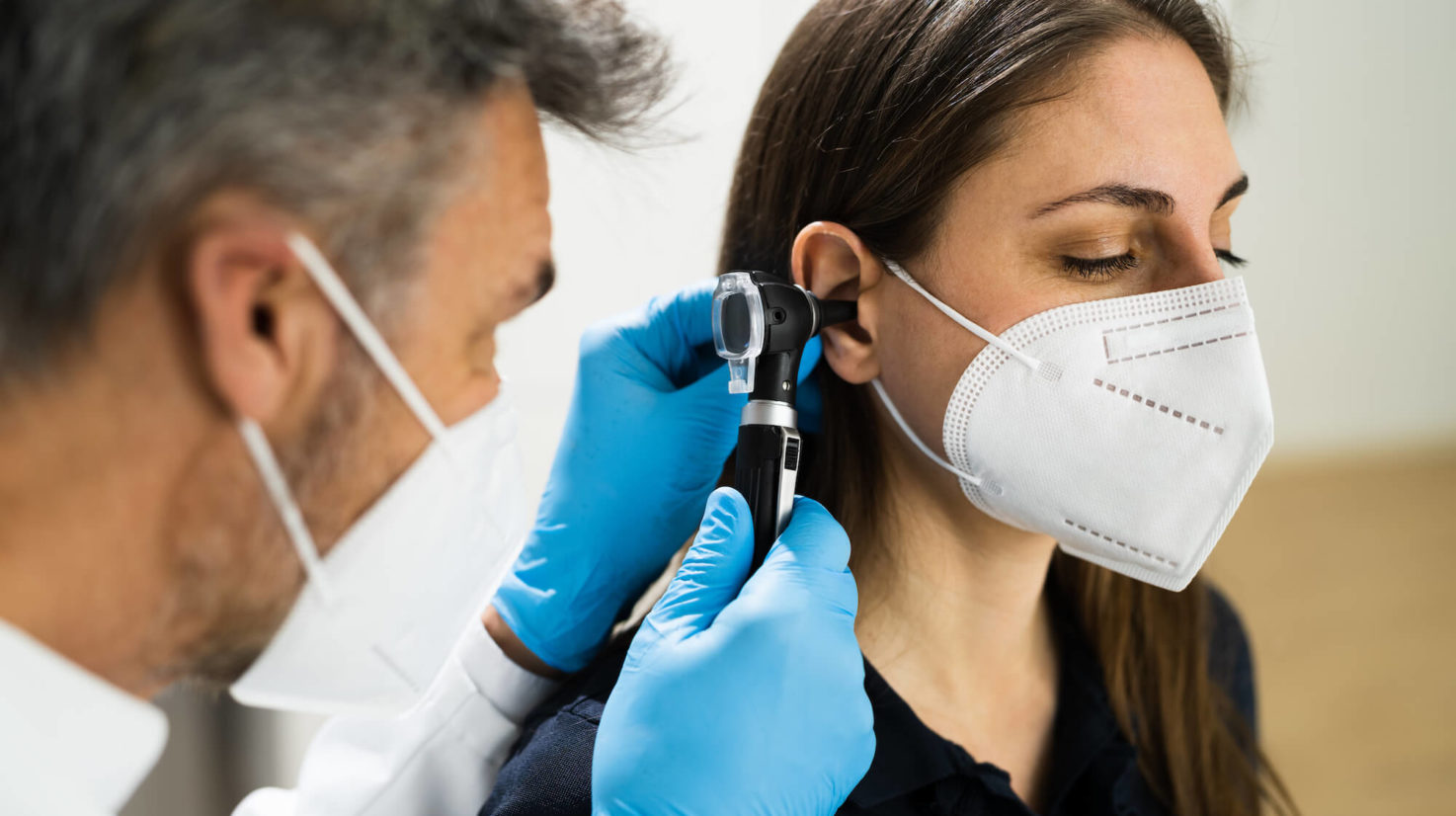Exploring the Field of Otolaryngology: What to Anticipate When You Consult an ENT
Otolaryngology, typically referred to as ENT, encompasses the diagnosis and therapy of nose, ear, and throat problems. For those experiencing relevant problems, getting in touch with an ENT expert can offer clearness and relief. Recognizing what to anticipate throughout such consultations is crucial for effective interaction and care. This overview will certainly describe vital elements of the ENT experience, including typical reasons for brows through and the processes involved in medical diagnosis and treatment.

Recognizing Otolaryngology: A Review
Otolaryngology, frequently described as ENT (Nose, throat, and ear) medication, is a specific branch of medicine that concentrates on the diagnosis and treatment of conditions affecting these essential areas of the human body. This field encompasses a variety of disorders, including those pertaining to hearing, equilibrium, respiratory system feature, and speech. Otolaryngologists are educated to handle both surgical and medical therapies, making use of sophisticated methods and technologies. Their competence prolongs beyond typical disorders, attending to problems such as allergies, sinus infections, and hearing loss. In addition, they play an essential function in the management of head and neck cancers, giving detailed treatment tailored to private client needs. On the whole, otolaryngology continues to be necessary for preserving wellness and lifestyle in affected people.
Typical Factors to See an ENT Expert
Many people look for the proficiency of an ENT expert for a variety of reasons, showing the diverse nature of conditions that impact the nose, throat, and ear. Usual concerns consist of persistent sinus problems, which frequently causes relentless nasal congestion and facial pain. Allergies and their connected signs, such as itching and sneezing, likewise trigger sees to these professionals (ENT surgery). Hearing loss, whether sudden or gradual, is an additional significant reason for examination. Furthermore, people may look for examination for throat disorders, consisting of consistent hoarseness or swallowing difficulties. Rest apnea, identified by disturbed breathing throughout rest, is frequently resolved by ENT specialists. Each of these problems highlights the relevance of specialized treatment in handling intricate ENT-related health concerns
Planning for Your ENT Visit
When preparing for an ENT consultation, it is important to collect appropriate details and think about any details worries. Patients must compile a detailed clinical history, consisting of previous ear, nose, or throat issues, surgical procedures, and present drugs. Documenting signs and symptoms-- such as extent, frequency, and period-- can give important understandings for the ENT specialist. Furthermore, people should prepare a listing of inquiries they wish to ask, making sure that all concerns are attended to throughout the go to. Bringing along any kind of relevant medical records or examination outcomes can further help the ENT in recognizing the client's condition. Lastly, people should verify their consultation details, including day, area, and time, to minimize any last-minute complication. Appropriate preparation can enhance the performance of the assessment and result in much better results.
What to Expect During the Consultation
As the consultation begins, the patient can anticipate to participate in a complete conversation with the ENT professional regarding their symptoms and case history. The professional will certainly ask about the period, regularity, and intensity of signs such as hearing loss, nasal congestion, or aching throat. In addition, the client's previous clinical conditions, medicines, and any appropriate household history will certainly be assessed, helping the specialist in creating a full understanding of the client's health. The ENT might likewise inquire about lifestyle aspects, such as exposure to irritants or toxic irritants. This open dialogue develops a foundation for the appointment, making sure that the client's concerns are resolved and setting the phase for any essential examinations or recommendations for therapy.
Diagnostic Examinations and Procedures in Otolaryngology
A series of diagnostic tests and treatments are essential in otolaryngology to accurately examine and identify conditions impacting the ear, throat, and nose. Usual examinations include audiometry, which determines hearing function, and like it tympanometry, examining middle ear stress. Nasal endoscopy allows visualization of the nasal flows and sinuses, while laryngoscopy examines the throat and singing cables. Imaging methods, such as CT scans and MRIs, supply in-depth views of head and neck frameworks. Allergy screening might likewise be conducted to identify triggers for sinus or breathing problems. These analysis devices enable ENT professionals to create a thorough understanding of people' conditions, making certain tailored and effective administration strategies. Correct diagnosis is important for effective therapy end results in otolaryngology.
Therapy Choices Offered by ENT Specialists
ENT specialists use a variety of treatment alternatives tailored to address details problems impacting the ear, throat, and nose. These therapies vary from traditional strategies, such as drug and way of living adjustments, to more intrusive treatments. Allergies may be taken care of with antihistamines or immunotherapy, while persistent sinus problems may require nasal corticosteroids or sinus surgery. For hearing loss, ENT specialists frequently recommend listening device or medical interventions like cochlear implants. In cases of throat disorders, alternatives can include speech therapy or surgeries to remove obstructions. Additionally, they might offer assistance for managing rest apnea, including making use of CPAP devices or medical interventions. Overall, the objective is to enhance patients' top quality of life with personalized treatment and reliable therapy methods.
When to Seek Follow-Up Treatment With an ENT
When to look for follow-up care with an ENT professional is important for taking care of recurring signs or problems related to nose, ear, and throat conditions, identifying. Patients need to think about arranging a follow-up consultation if signs persist despite initial treatment, such as persistent ear discomfort, nasal congestion, or throat discomfort. Adjustments in hearing, balance issues, or uncommon nasal discharge may also call for additional evaluation. Furthermore, if a patient experiences side impacts from suggested drugs or has undergone a procedure, follow-up care is vital to redirected here keep track of recovery and address any type of problems. Prompt examinations can ensure efficient monitoring of conditions, prevent prospective complications, and supply assurance relating to one's health. Seeking follow-up treatment promotes positive wellness management in otolaryngology.
Frequently Asked Questions

What Qualifications Should I Try to find in an ENT Expert?
When looking for an ENT professional, one ought to try to find board certification, pertinent experience, and strong individual reviews. Additionally, efficient interaction skills and a try this site compassionate method can greatly boost the general treatment experience.
How Do I Select the Right ENT for My Demands?
Picking the ideal ENT specialist includes examining their credentials, experience, and client testimonials (Otolaryngology). It is vital to ponder their interaction design and strategy to treatment, guaranteeing they straighten with the individual's details health and wellness requirements and choices
Exist Any Type Of Threats Associated With ENT Procedures?
The risks connected with ENT treatments may consist of infection, blood loss, anesthesia issues, and prospective damages to bordering structures. Individuals should talk about these risks with their doctor to comprehend private issues and assurance educated choices.
Exactly How Can I Manage Anxiousness Before My ENT Consultation?
To manage anxiousness before an appointment, individuals can practice deep breathing exercises, imagine favorable results, prepare concerns beforehand, and look for support from buddies or family, cultivating a sense of reassurance and calmness.
What Should I Do if I Experience Negative Effects From Therapy?
The person needs to immediately report them to their health care supplier if side impacts from therapy occur. Modifications to treatment or added interventions may be necessary to guarantee safety and security and performance in managing their problem - ENT surgery. As the examination starts, the person can expect to engage in a complete conversation with the ENT professional about their symptoms and clinical background. These diagnostic devices enable ENT specialists to develop a complete understanding of people' conditions, making certain tailored and reliable monitoring strategies. ENT specialists supply a range of treatment options customized to address particular problems affecting the ear, nose, and throat. When looking for an ENT professional, one must look for board certification, relevant experience, and solid client evaluations. Choosing the right ENT professional entails reviewing their certifications, experience, and individual evaluations
Comments on “Should You See an ENT Be the Best Option for Your Allergy Management?”